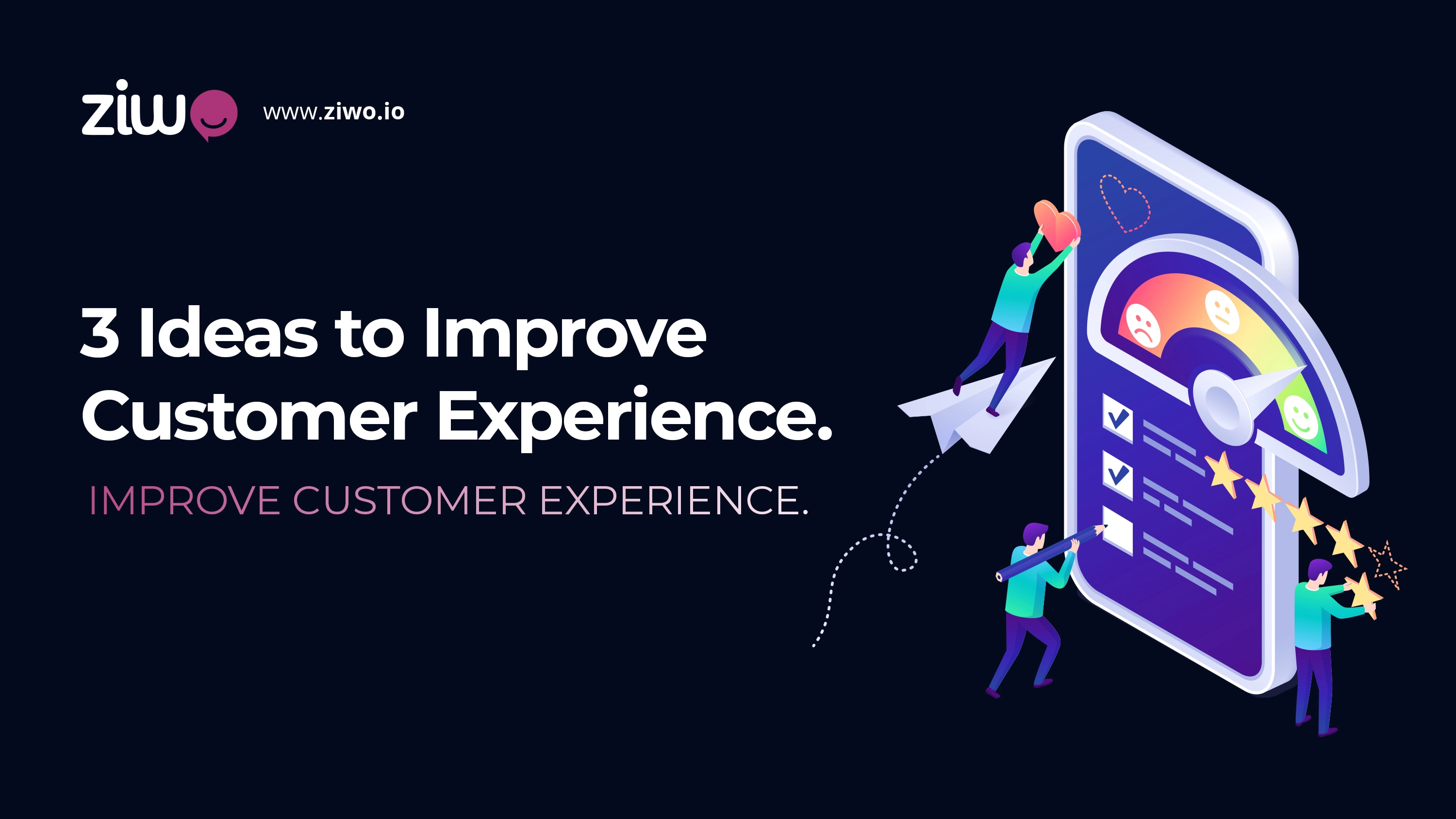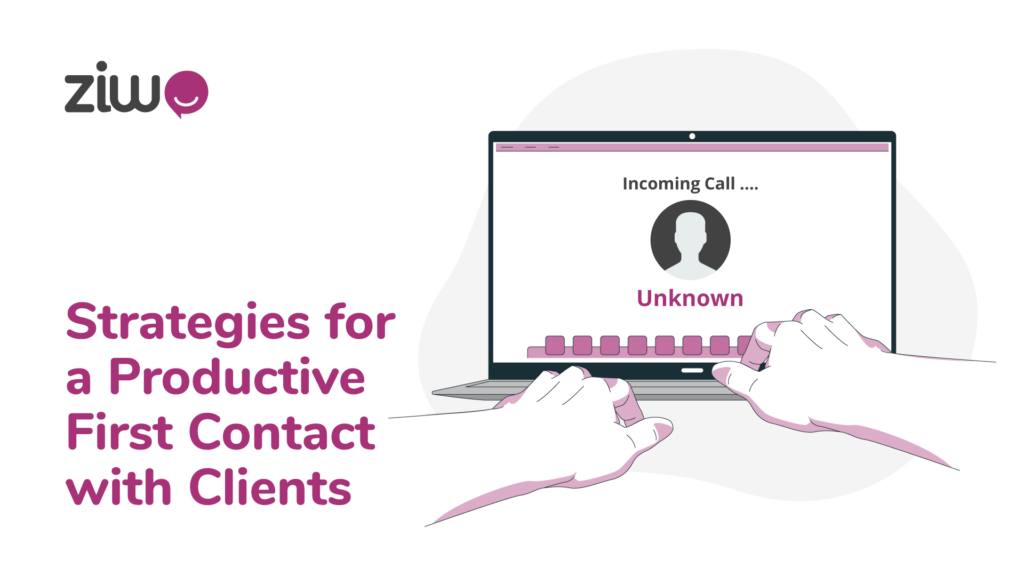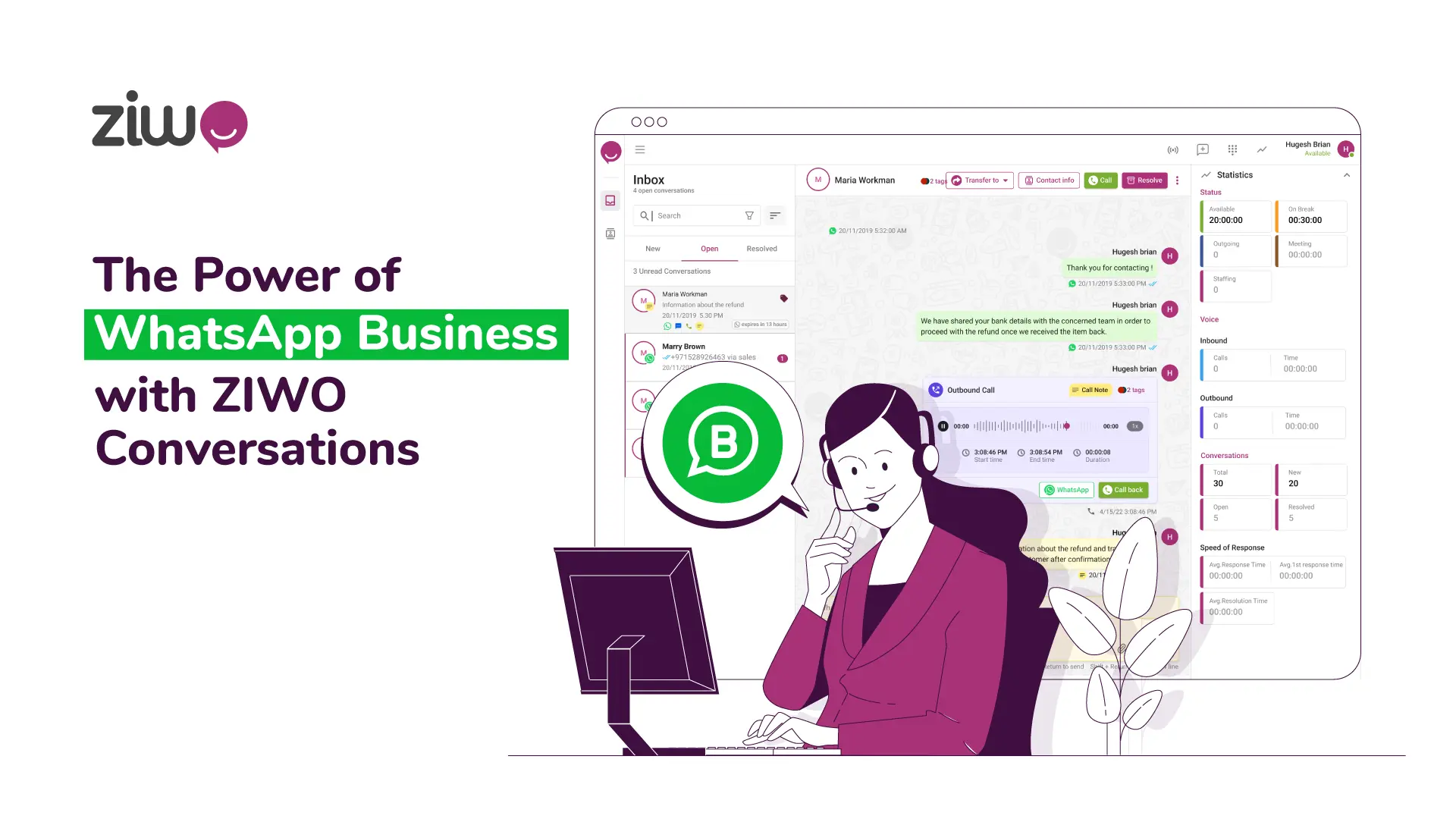
Un agent de centre d'appel qui connaît les règles de conversation au téléphone et l'étiquette téléphonique se sent en confiance, s'adapte au client et réalise les tâches qui lui sont confiées.
Essayons de donner quelques conseils à tous ceux qui essaient d'apprendre à parler correctement au téléphone. Cela vous aidera non seulement à améliorer l'efficacité de la communication avec le client, mais aussi à faire germer les compétences de la personne qui se trouve à l'autre bout du fil.
Aujourd'hui, l'approche centrée sur le client est devenue une norme pour les entreprises. Les attentes croissantes des clients et la concurrence commerciale ont conduit à la nécessité de fournir un service à la clientèle exceptionnel, faisant d'excellentes compétences en communication l'un des points forts des agents des centres d'appels.
La liste ci-dessous comprend nos 12 meilleurs conseils d'étiquette téléphonique pour les agents des centres d'appels :
1 Répondre au téléphone aussi vite que possible
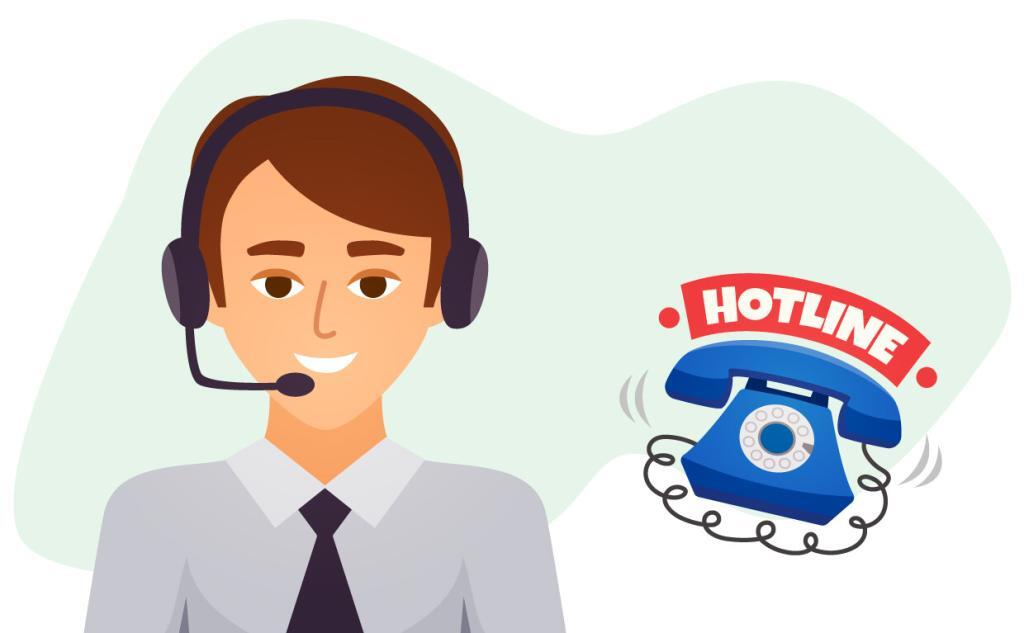
Ne demandez pas à vos clients d'attendre intentionnellement que vous répondiez au téléphone. Essayez toujours de répondre au bout de trois sonneries. Dans le cas contraire, les clients risquent d'être agacés.
Le temps d'attente pour parler à un agent du service clientèle peut parfois dépasser les trois sonneries si personne n'est disponible à ce moment-là. Dans ce cas, il faut trouver une solution. Par exemple, donnez aux appelants un message de bienvenue et informez-les du temps d'attente prévu.
2 Se présenter
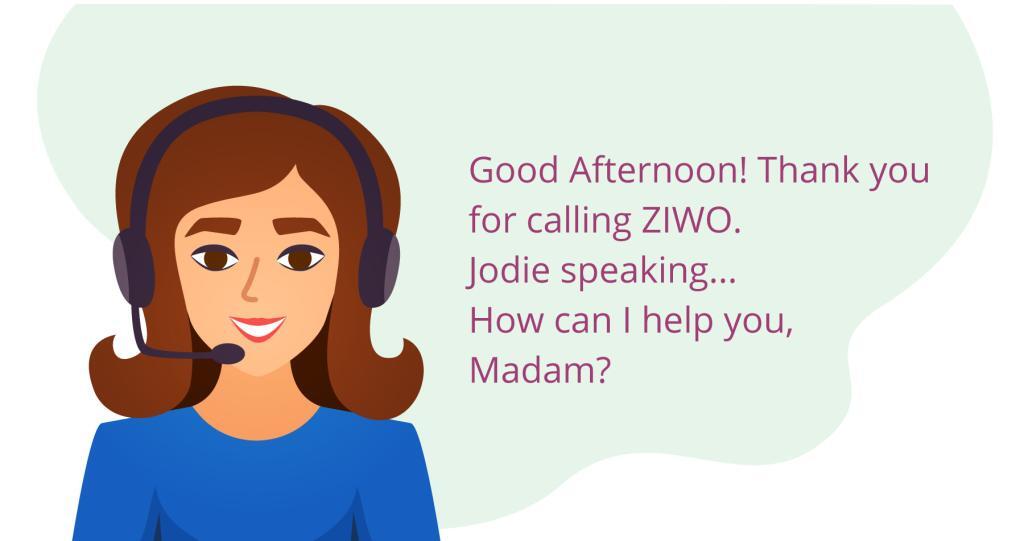
Lors d'appels personnels, vous pouvez simplement entamer la conversation en disant "Bonjour". Lorsqu'il s'agit d'appels professionnels, présentez-vous toujours et donnez des informations sur le nom de l'entreprise, voire précisez le service.
Parfois, les numéros de téléphone de l'entreprise sont très similaires et les erreurs de numérotation peuvent arriver à tout le monde. Pour commencer vos échanges de manière amicale, demandez à votre interlocuteur comment vous pouvez l'aider. Vous créerez ainsi une atmosphère positive dès la première minute de la conversation.
3 Écouter activement les clients

Lors de chaque appel téléphonique professionnel, vous devez écouter activement vos interlocuteurs. Cela signifie que vous devez prêter attention à toutes les informations et à tous les commentaires, prendre des notes et répondre de manière appropriée aux plaintes des clients, sans vous contenter de phrases tirées directement des scripts.
Bien sûr, certaines lignes directrices doivent être respectées, mais donnez à votre conversation une touche personnelle pour que les appelants sentent que vous vous souciez d'eux et que vous êtes prêt à résoudre leurs problèmes. L'écoute active signifie également ne pas interrompre. Prenez des notes pour vous souvenir des détails qui pourraient être utiles, mais n'interrompez jamais votre interlocuteur lorsqu'il explique ses problèmes.
4 Prêtez attention au ton de la voix

Lavoix est un facteur essentiel dans la perception des opérateurs par les appelants. Pour établir un lien avec les clients et montrer que vous vous souciez d'eux, vous devez utiliser un ton amical et un volume constant tout au long de l'appel.
Évitez d'avoir l'air anxieux, pressant ou vendeur. Efforcez-vous de paraître amical et professionnel. Même si les clients semblent frustrés ou en colère, vous devez rester calme et gérer la situation avec gentillesse.
Essayez de trouver un équilibre parfait entre parler trop fort et parler trop doucement. Ne criez jamais, mais assurez-vous que les clients vous entendent bien.
5 Utilisez un langage approprié
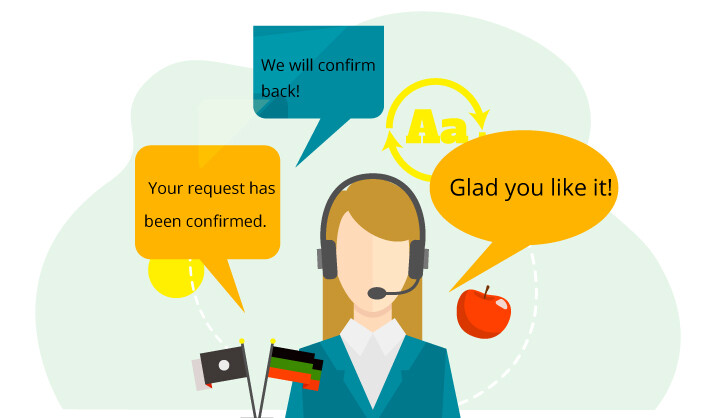
Un autre aspect évident qui diffère entre les appels personnels et professionnels est le langage. Pour éviter d'offenser un client, même involontairement, il est préférable de s'en tenir à un langage formel et d'éviter les plaisanteries. On ne peut jamais être sûr de ce qui peut contrarier ses interlocuteurs, c'est pourquoi il est préférable d'être poli et courtois.
6 Faites preuve d'empathie
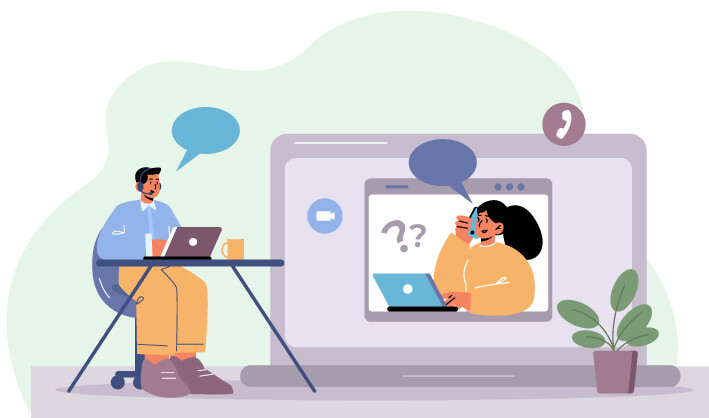
Très souvent, l'équipe du service clientèle doit résoudre des problèmes qui sont ennuyeux et frustrants pour les clients. Ne leur donnez pas plus de raisons d'être en colère. Faites preuve de sympathie et de compréhension à l'égard des situations des clients.
Dans le cadre de l'étiquette téléphonique, vous devez insister sur le fait que votre entreprise se soucie de ses clients et qu'elle s'efforcera de résoudre tout événement malheureux survenu dans le passé. On ne sait jamais quand les clients passent une mauvaise journée, il n'y a donc pas de mal à rester joyeux et à aider votre marque à fidéliser sa clientèle.
7 Demandez avant de rediriger ou de mettre en attente

Il arrive que des clients appellent l'entreprise parce qu'ils ont plusieurs problèmes à régler. Si vous devez transférer un client particulier à l'opérateur le plus qualifié pour vous aider, vous devez demander au client s'il est d'accord.
Il faut également expliquer pourquoi c'est nécessaire. De cette manière, les clients comprendront pourquoi ils doivent à nouveau expliquer leurs problèmes à une autre personne. Il arrive parfois que vous deviez mettre un client en attente pour vérifier certaines informations.
Ne faites pas semblant de connaître la réponse si c'est l'inverse qui se produit. Pour aider au mieux vos clients, vous pouvez prendre le temps de trouver la réponse la plus précise. Assurez-vous que votre interlocuteur est prêt à attendre et informez-vous du temps que cela prendra et, encore une fois, si c'est nécessaire.
8 Soyez compétent

L'équipe en contact avec la clientèle est essentielle à la construction de l'image de confiance de votre marque. Les agents doivent faire preuve d'un certain niveau de connaissances, c'est pourquoi il est nécessaire de leur fournir une formation sur vos produits ou services, ainsi que sur le secteur lui-même.
Investissez du temps dans ce processus afin de préparer votre équipe à fournir un excellent service à la clientèle. Réfléchissez à la manière de traiter les questions extrêmement complexes. Comment les agents peuvent-ils contacter les experts pour trouver les bonnes solutions ?
Concevez ces scénarios et rassemblez ces informations pour partager les connaissances et permettre à vos agents d'apprendre par l'expérience. Lorsqu'ils s'adressent aux clients, vos employés doivent être sûrs d'eux et confiants dans leurs actions.
9 N'utilisez pas d'abréviations ou d'argot

Si vous parlez à d'autres personnes, il est important qu'elles vous comprennent clairement. Pour ce faire, il est bon d'éviter les mots initiés, les mots locaux et les abréviations. Supprimez toutes les abréviations et tous les mots d'argot.
Utilisez un langage précis et adapté aux compétences des personnes présentes à la table, bien sûr, mais demandez-vous toujours d'abord si le mot que vous allez prononcer n'est connu que dans le cercle restreint des employés de votre secteur ou s'il sera compris par tout le monde.
10 Fixer des limites

Parfois, les clients exigent trop des opérateurs. Tous les aspects ne peuvent pas être traités par le service clientèle ou par l'entreprise en général. Il peut être utile de partager avec les clients les documents relatifs aux compétences et aux responsabilités de l'équipe.
Vous pouvez ainsi expliquer ce que vous pouvez faire et ce que vous ne pouvez pas faire. Un tel document peut donner de la crédibilité à vos propos.
11 Restez calme
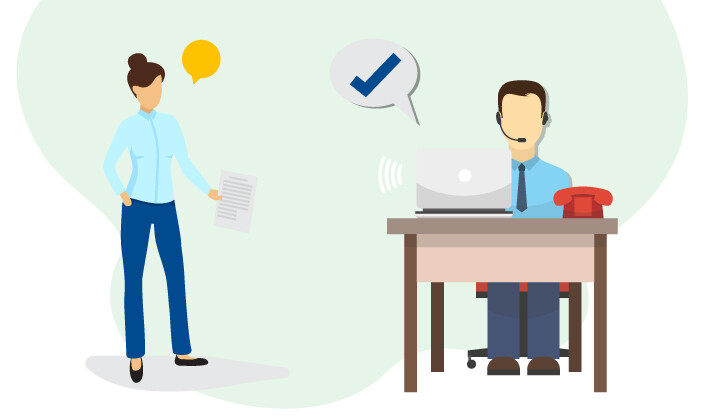
Il peut arriver que le client demande à rester en ligne jusqu'à ce qu'un certain problème soit complètement résolu. Il faut parfois du temps pour résoudre les problèmes, en particulier les problèmes techniques.
L'une des principales règles d'étiquette au téléphone consiste à rester calme et à expliquer votre plan de suivi de manière professionnelle. Assurez à votre interlocuteur que vous examinerez attentivement son cas et que vous ferez tout ce qui est en votre pouvoir pour éviter que le problème ne s'aggrave.
12 Évitez les distractions

Tenir le téléphone tout en regardant une vidéo sur l'écran
Si vous êtes en communication, vous êtes en communication. Ne vous laissez pas distraire par la télévision, vos collègues, des vidéos ou des jeux.
Ne parlez à personne autour de vous (que vous ayez le micro ou non) et ne faites rien d'autre. Croire que vous pouvez être multitâches pourrait vous coûter cher, vous pourriez manquer une partie importante de la conversation et vous retrouver avec un élément en moins au moment de travailler sur ce qui a été décidé et planifié en réunion.
Conclusion de l'ETIIQUETTE téléphonique

Nous espérons que votre équipe pourra bénéficier des conseils présentés ci-dessus. Les superviseurs de votre centre d'appel ont probablement aussi des techniques qui peuvent être appliquées par l'ensemble de l'équipe en ce qui concerne l'étiquette au téléphone et les conseils pour les agents du centre d'appel. Faites un brainstorming, partagez vos idées et demandez l'avis de vos collègues, car ce sont eux qui sont quotidiennement confrontés aux clients. Chacun peut contribuer à l'étiquette téléphonique de votre entreprise en partageant ses expériences et ses idées.
De cette manière, vous pouvez créer un ensemble de règles adaptées à l'équipe qui s'adresse aux clients. Une fois que tous les agents connaissent les règles et sont prêts à dialoguer avec les clients, ils peuvent vous aider à créer une image positive et digne de confiance de votre marque.
Sujets connexes :
Comment utiliser la numérotation sortante dans le marketing ?
>
>
Comment utiliser la numérotation sortante dans le marketing ?
>
>
